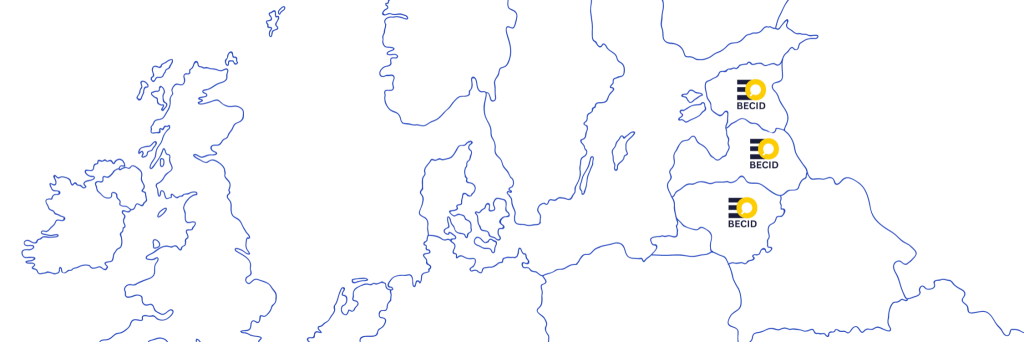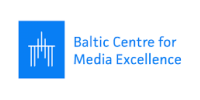Turbulent histories have made the Balts more resilient to propaganda but we are not magically immune to disinformation

Maria Murumaa-Mengel
22.02.2023
Baltic Engagement Centre for Combating Information Disorders (BECID) has just kicked off and we start our series of blog posts with a brief overview – why the world needs another knowledge and action hub and how are the Baltics both, unique and universal. Maia Klaassen is junior research fellow in media literacy at the University of Tartu and the heart of BECID. Maia has coordinated the centre’s coming to life and is the person who gets the most “Excuse me, could you tell me where/who/what…” type of inquiring emails about the hub. It makes sense that we kick off with a short interview with Maia.
Why do we need such an action and knowledge hub that Baltic Engagement Centre for Combating Information Disorders is?
Well, for many years we didn’t need BECID! So one might argue you could still continue on, everyone in their own corners, doing their own little thing and hoping that somehow this larger strategic picture would end up playing into the smaller actions.
What we have discovered, for example, regarding strategically manipulated harmful narratives – they don’t really stop at the border of Estonia or, say, Latvian border. In reality, we have found is that many of disinformative narratives that are being used to manipulate the public opinion actually are kind of identical in very different parts of the world. You just can see the change of very small details, but mostly it is copy-paste.
A really simple example would be how in the beginning of the new wave of aggression that Russia took against Ukraine, there was loads of disinformation in the form of gossip – “Oh, we have these refugees that peed into our corridors”. This was a narrative that was present at once and you could map the very same narrative in 7 or 8 countries during the first day.
It is not a coincidence, it is not an “Estonian issue”, but rather a targeted narrative for our whole region. Hence regional cooperation could ensure that instead of everyone sitting in their own corners and duplicating the work, we can cooperate, share materials and best practices while lightening the load for individuals.
The three Baltic countries – are they different from each other? And to see the bigger picture – are the Baltics somehow different from the rest of Europe or the world?
In the context of information resilience and developing resilience to disinformation narratives. We have a lot of similarities. But you can already see, even from our demographic composition, that there will be some differences. For example, Estonia and Latvia have quite a high amount of Russian-speaking locals, but in Lithuania it’s less than 5%. So of course, our approaches to Kremlin disinformation can not and are not the same.
And you can also see the differences in our strategic documents, which I think is quite interesting. Estonia talks about information resilience as a concept that has mostly to do with how our information environment currently is. Lithuania has built it up much more on information security and talks about how information influences national security. Latvia is somewhere in between the two, like the geographical position. In that sense, you can see that we have different vulnerable groups, demographics, strategies, approaches, and language.
That being said, we also share a lot. History binds us – anyone who has been part of the USSR looks at propaganda, censorship, keeping information from the people, in a very different way. It is directly connected to our freedom, right? So it makes a tricky background. Again, an example – regulating the use of hate speech and symbols, like Nazi symbolics and ideology. We didn’t have regulation before but now we finally do. Threat to our information environment was finally substantial enough to make that move.
Our reactions are probably different from Western Europe because we have different histories, experiences, and understandings of what happened. Still those differences are not so big that we would have a completely different approach. Turbulent times in history, for example, have probably made our journalists, security forces, defense experts, anyone really, more resilient. But the Baltics are definitely not magically immune to disinformation.
We are in a global crisis, it is a question of how the small differences and the knowledge about these details can benefit a larger community.
What is the one thing, a piece of knowledge you would like for all people to know, be aware of?
One thing that I have found mildly upsetting sometimes, is the understanding that combatting disinformation can somehow be done with massive political and societal support. Let me explain. I completely agree with Italian Digital Media Observatory director Gianni Riotta, who said recently in a speech that “we are not being attacked enough and that means we are not doing well enough”.
The sad truth of the day, a somewhat disheartening reality check, is that if you are doing well in our field, you should be under constant troll-attacks, from bots, politicians, activists, etc. We are probably not stepping on enough toes, not doing enough to upset people who pay money, or put in other resources to produce these narratives and disinformation. So this is a valuable thought for me and it could be useful for others who are trying to make a change for the better.
The lack of attacks shows that we should be doing more. It is also a question of how big of a crisis do we perceive to be happening at the moment? In my opinion, with all of our hubs and centers – we really should have climbed over a hill already, but in reality we are just gearing up for the climb. The main positive thing is that we are relentless. Big interwoven organisations and systems take time to gear up but when they do, they can bring huge positive societal changes.





